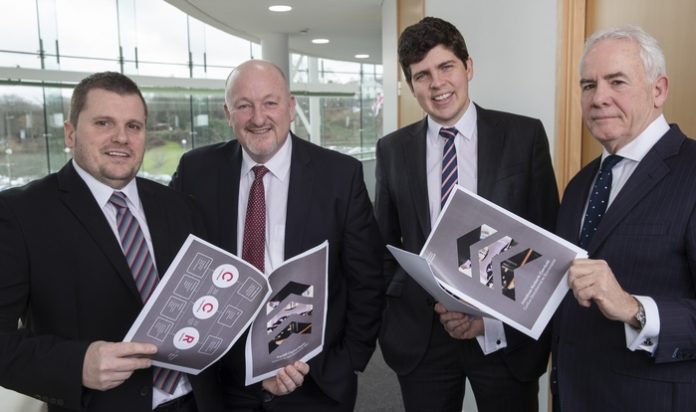
The Cardiff Capital Region Economic Growth Partnership (EGP) has unveiled its Industrial and Economic Growth Plan for South-East Wales to improve future productivity and prosperity across South-East Wales.
The Plan responds to the dynamic challenges the region will face over the next twenty years.
The Plan involves:
- Identifying the region’s strengths and weaknesses and maximising its opportunities.
- Identifying and developing the skills required to benefit business and create a highly-skilled, motivated and forward-thinking workforce.
- Enabling the appropriate infrastructure to enhance connectivity, both digitally and physically.
- Developing opportunities to encourage innovation and entrepreneurship.
- Creating an Innovation Investment Fund that creates opportunities for businesses to compete and contribute towards job growth and improvement in the local Gross Value-Added metric.
The Plan builds on the broad framework for action set out by the Growth and Competiveness Commission report which gave its findings in December 2016.
Frank Holmes, Chair of the CCR’s Economic Growth Partnership which has developed the Plan, said: “The Plan is industry-led and developed by business.
“It highlights some of the economic productivity issues our region faces and endorses innovation-led, scalable projects necessary to generate sustainable growth and inclusive prosperity.
“It advocates global connectivity by investing in first-rate transport systems, housing, digital infrastructure and employable skills in order to exceed the competitive objectives of job creation, improved GVA and leveraging ever-green investments.
“Like any plan its success will be determined by action and leadership, requiring all stakeholders to commit to its delivery and ambition of generating a thriving and resilient economic region necessary to sustain the prosperity of future generations to come.
“It is critical that this plan and this region has visibility and influence outside of Wales, and indeed, globally. Our competition is both overseas and the other regions of the UK.
Cohesion amongst all stakeholders is fundamental to the Plan’s success. This includes joined-up regional and UK government policies, public-private sector partnerships, reciprocal collaboration with education providers and social enterprise engagement. With these partnerships, the Plan looks to enhance existing skills and develop new ones that will align with the region’s focus sectors.
“Therefore, we will be promoting and engaging with stakeholders not just in Wales, and further afield as well.”
The Economic Growth Partnership collaborated closely with the City Deal Cabinet throughout the process, which has fully endorsed the final Plan.
Building on the region’s competitive advantage and opportunity within the economy, the Plan strategically targets sectors for support to grow and flourish. These include, but are not limited to:
- Compound Semiconductors and its supply chain
- AI, Data and Cyber Security
- Financial Technology
- Creative Economy
- Life sciences – more specifically the medical devices and diagnostics subsectors.
- Transport Engineering – automotive, trains and aircraft
The CCR has already started investing in these industries, providing £38.5 million to support the world’s first compound semiconductor cluster based in South-East Wales.
Another critical focus of the Economic Growth Plan is reliable infrastructure that connects the region, not only across the region but also beyond. By making the region more accessible, the Plan can support deprived and isolated communities that are currently poorly connected and encourage regenerative growth. The future infrastructure of the region will be underpinned by the £734million South Wales Metro, which is being funded with City Deal investment.
The Economic Growth Partnership has also been tasked with designing an Investment and Infrastructure Framework, addressing three designated and interconnected investment priorities of innovation, infrastructure and industrial challenges of mobility, ageing population, AI and challenge-led economic growth. This inventive approach recognises the need to improve the business environment within the CCR, rendering the region competitive and investable with a global focus, both inwardly and externally.
Mr. Holmes said: “There has to be an emphasis on new regional investment being won competitively through the U.K. wide industrial strategy, for which the combined annual delivery budget of UKRI is £6.4bn. Currently, Wales has low levels of representation in this space. We need to build profile and presence in positive ways. Talking to the same people and telling those who already know the story won’t achieve this. We need to reach a wider audience to promote our investable region.”
Councillor Andrew Morgan, Chair of the Cardiff Capital Region Cabinet, and Chair of Rhondda Cynon Taf Council said: “The Regional Cabinet is pleased with how the Economic Growth Plan has been developed and welcomes the fact that it goes beyond just creating jobs. It looks at the four combined aspects that will help us grow the economy: housing, transport, skills and jobs, and in turn, that will bring about economic benefits across the region.
“Working with Welsh Government and led by our EGP, we have to plan for a world where there are no more city deals and no more EU funding.”


















